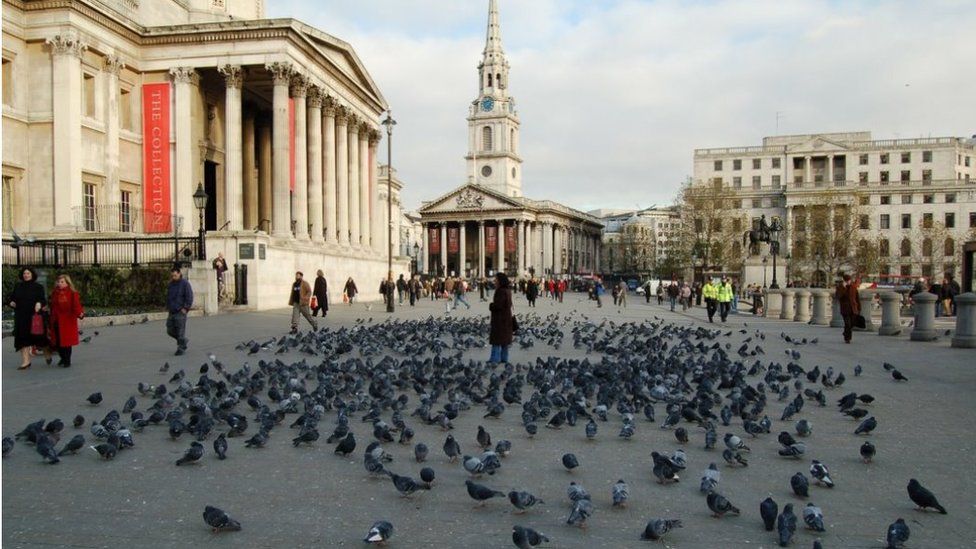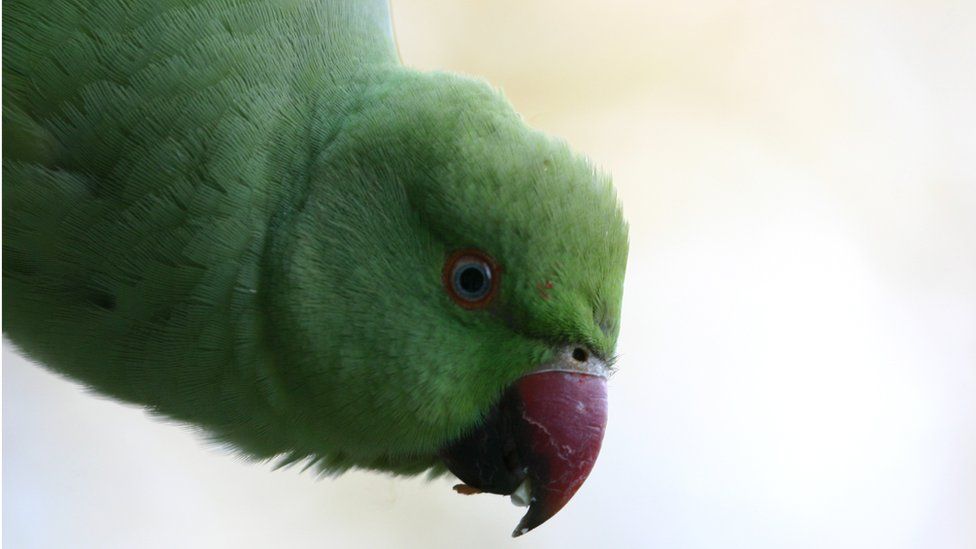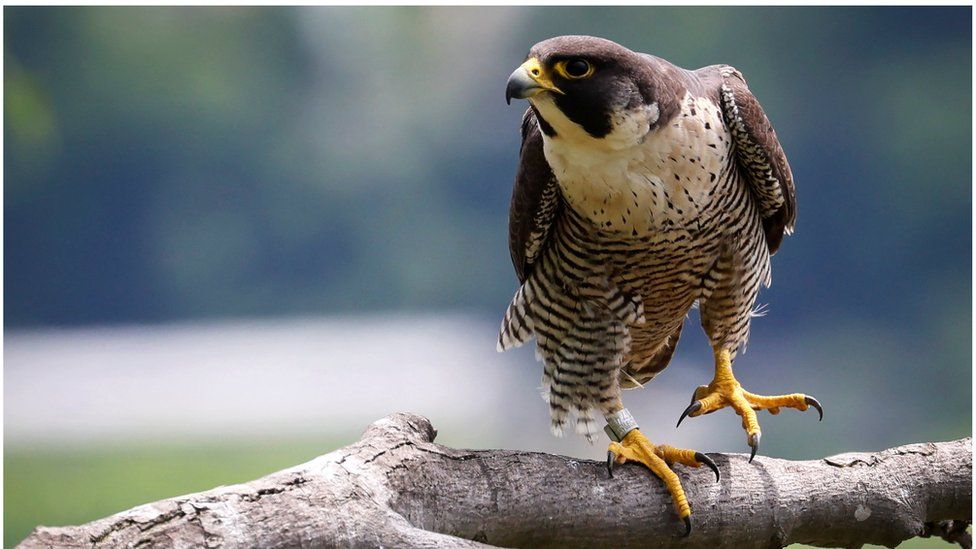Scientists have discovered that during lockdown, London's peregrine falcons were forced to consume more parakeets.
During the Covid pandemic, King's College London discovered that peregrines had to find substitutes as pigeons fled urban areas.
The reason, according to researchers, was that locals weren't feeding pigeons crumbs.
Lockdown "had an impact on the diets of many birds of prey globally," a researcher told the BBC.
Over three breeding seasons, the researchers used online nest cameras to examine peregrine diets and reproduction at 31 locations in 27 UK cities.
A Covid-19-related lockdown in all of England occurred during the first time frame, which ran from March to June 2020.

35 percent pigeons, 36 percent starlings, and 18 percent parakeets made up the diet of peregrine falcons at this time.
Pigeons constituted almost half of the falcons' diet during the following periods that were observed.
Peregrine falcons are not picky eaters and will consume any birds they can find, according to Brandon Mak from King's College London.
The peregrines had to find alternative food because pigeons fled central London during the lockdown because there was less food available.
The peregrine falcons have resumed eating pigeons as their main prey now that they have returned to the city. ".
Due to the large population of pigeons, peregrine falcons, which are among the fastest birds in the world, first arrived in the UK in the 1990s.
There are about 40 breeding pairs of peregrine falcons in London, making it one of the cities with the highest density.

The rising number of ring-necked parakeets and pigeons, which may be negatively affecting native wildlife, has conservation organizations working on birds hoping that these birds will provide a solution.
"I am all for natural biological pest control, and peregrine falcons eating parakeets is a good way to control their population," said Mr. Mak. ".
This study will add to the body of work being done by the Global Anthropause Raptor Research Network, which examines how lockdowns have affected raptors all over the world.







